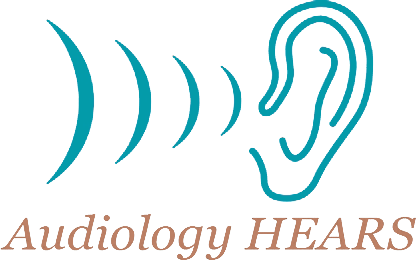If you have recently attended a hearing exam you may have heard us refer to “normal” hearing. What does it even mean to be normal? This type of description can often lead to feelings of being othered. Normal is often used to describe individual behavior that conforms to the most common behavior in society, however, in the case of hearing loss, it is used as a base level to determine if you have a hearing loss.
Hearing Thresholds
How do we define normal? Well, it all started in 1933, at the World’s Fair. It was here that researchers performed hearing tests on thousands of visitors in order to obtain an average threshold that people could hear at their best. This was defined as a “normal” hearing threshold. They achieved this by averaging the softest sounds that people could hear at each frequency, creating a standardized formula to identify a hearing loss.
Today a hearing threshold is defined as the softest sound you can hear at any given frequency or pitch. The quietest sound a person with “normal” hearing can hear was and still is today called audiometric zero. (0 dBHL or Decibel Hearing Level).
What Is Normal Hearing?
While 0 dBHL is established as normal hearing, it actually occurs on a range from 0 dBHL to 20 dBHL. Some people can hear sounds even lower than 0 but audiologists define normal hearing between this range, meaning you can hear most sounds that the average person without hearing damage can perceive.
What Is Hearing Loss?
Beyond the range of normal hearing is where hearing loss is diagnosed to a continued range of degrees. It is measured using a range of hearing exams which measure the level of sound you can hear. The most common test to achieve this is called the pure tone audiometry test. To obtain results from this test you will be put in a sound-controlled room while wearing headphones. We will then play tones, and pitches to determine the quietest sounds you can hear in each ear. As sounds are played through the headphones you will be asked to raise a hand on the corresponding side the sound is played.
Other tests will explore your ability to hear speech and sounds in noise. If the result of a hearing exam shows that you struggle to hear sounds louder than 21 dBHL, then this means you have a hearing loss.
Degrees of Hearing Loss
When you’re young, typically your hearing is better. However, this is not only the case. Hearing loss can be caused by a wide range of factors. The most common being exposure to loud noise at work or during recreation. The World Health Organization projects that 1.1 billion people between the age of 12 and 35 are at risk of hearing loss due to exposure to loud sounds at entertainment venues and by personal headphone listening habits. Still, as you age, the risk of hearing loss goes up significantly. These and many other factors may impact the results of your hearing exam.
These factors can result in varying degrees of hearing loss from normal to severe. Here is a chart to better show the scale in which hearing ability is measured.
- Normal hearing – a hearing threshold which begins below 0 and can be as high as 25 dBHL on any pitch.
- Mild hearing loss –You can’t hear sounds softer than 26 dBHL and ranges to a loss of 40 dBHL.
- Moderate hearing loss – your hearing thresholds are between 41 to 55 dBHL.
- Moderately severe hearing loss – your hearing thresholds are between 56 dBHL to 70 dBHL, meaning that you miss soft sounds in your environment such as ambient noises and whispered conversation.
- Severe hearing loss –a hearing threshold between 71 dBHL to 90 dBHL can lead you struggle everyday conversation.
The Impact of Hearing Loss
Depending on your degree of hearing loss, it can start to impact your life. It can be harder for you to hear conversations which impact the quality of your everyday social interactions, at home, among friends and at work. People may misunderstand an undiagnosed hearing loss as you not paying attention, seeming distracted or disinterested. This can lead to rifts in your supportive relationships and loss of earnings and advancement in professional fields. Unaddressed hearing loss can lead to feelings of inadequacy, loneliness, depression, and social isolation. In addition, research has shown higher rates of dementia in older adults due to an untreated hearing loss as well as higher rates of accidents leading to hospitalization.
Do you suspect you are struggling with hearing loss? It’s always safer to know for sure! Contact us to set up a hearing exam today!
